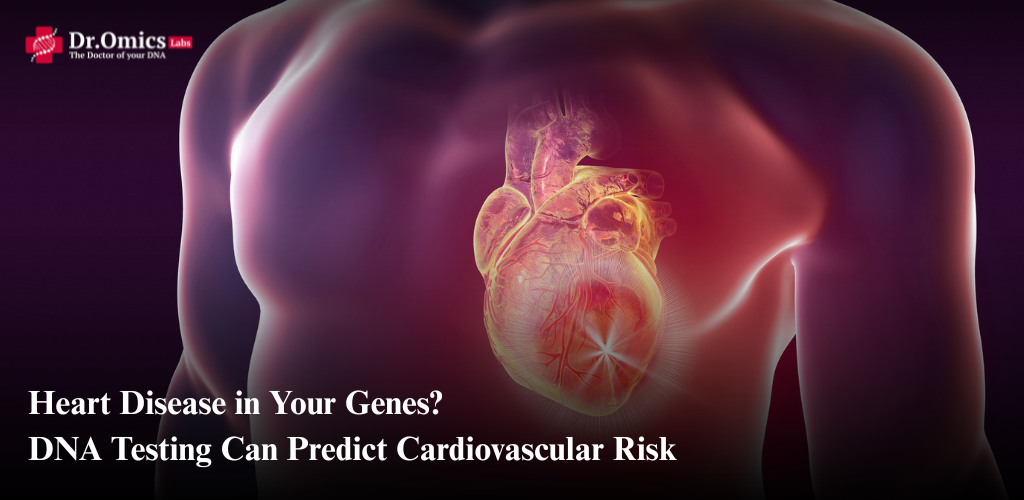Heart disease remains the leading cause of death worldwide, but advances in cardiovascular genomics are providing new insights into how genetic factors influence risk and how DNA testing can help predict and prevent heart attacks and other cardiac events.
Understanding Genetic Risk for Heart Disease
Genetics play a significant role beyond lifestyle factors in determining cardiovascular risk. Multiple genes affect pathways related to cholesterol metabolism, blood pressure, inflammation, and heart muscle function. This means inherited variation can increase your genetic risk for heart attack.
Large studies have identified many genetic variants linked to coronary artery disease (CAD). These variants, often combined into polygenic risk scores, help estimate lifetime risk independent of traditional clinical risk factors.
What Is a Heart Health DNA Test?
A heart health DNA test analyzes specific gene variants associated with heart disease, such as those regulating cholesterol, triglycerides, blood pressure, and clotting. Some tests evaluate rare mutations in inherited cardiac testing for conditions like familial hypercholesterolemia, which causes very high cholesterol from birth, or cardiomyopathies linked to heart failure or arrhythmias.
Such testing uncovers hidden genetic susceptibility, guiding preventive steps including lifestyle changes, targeted medications, or specialist care.
The Best DNA Test for Cholesterol and Cardiovascular Risk
Among cardiovascular DNA tests, those that cover genes crucial in cholesterol metabolism are especially informative. Genes like LDLR, APOB, and PCSK9 are often included in the best DNA test for cholesterol, as mutations here substantially influence blood lipid levels.
Polygenic risk scores that consider hundreds or thousands of variants outperform single-gene tests in predicting coronary events. Combining genetic data with clinical measures improves cardiovascular risk assessment.
Benefits of Inherited Cardiac Testing
Inherited cardiac testing focuses on detecting mutations causing hereditary heart diseases that can lead to early heart attacks or sudden cardiac death. Identifying these mutations enables:
- Early diagnosis and screening of relatives
- Life-saving interventions like implantable defibrillators or tailored medications
- Guidance for reproductive decisions
This form of genetic testing complements broader risk assessment by targeting known disease-causing genes.
How DNA Testing Shapes Cardiovascular Care
Integrating a heart health DNA test with medical information allows cardiologists to provide personalized care including:
- Tailored prevention plans for those with high genetic risk
- Selecting cholesterol-lowering therapies based on genetic predictors
- Early intervention in inherited cardiac conditions
- Personalized lifestyle recommendations based on genetic risk awareness
Ongoing advances in cardiovascular genomics and genetic risk modeling are paving the way for truly precision heart disease prevention and treatment.




